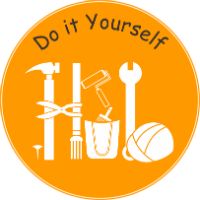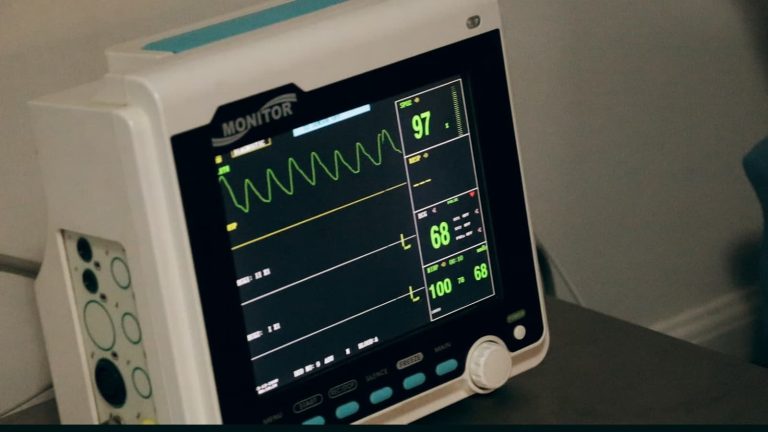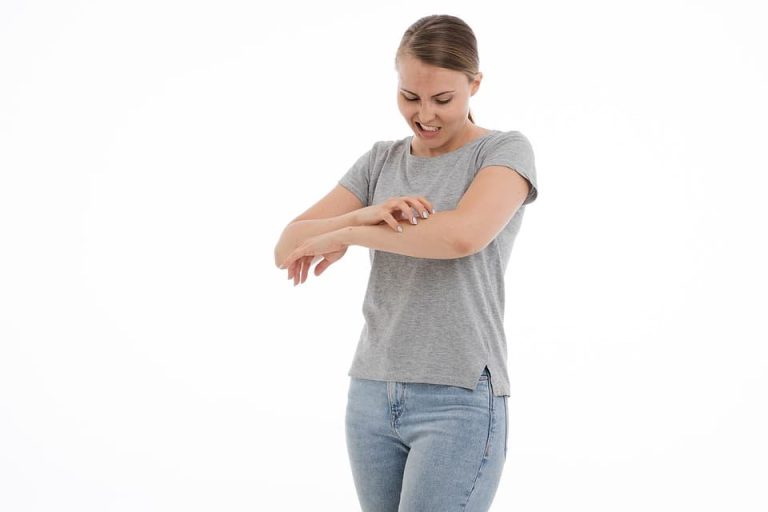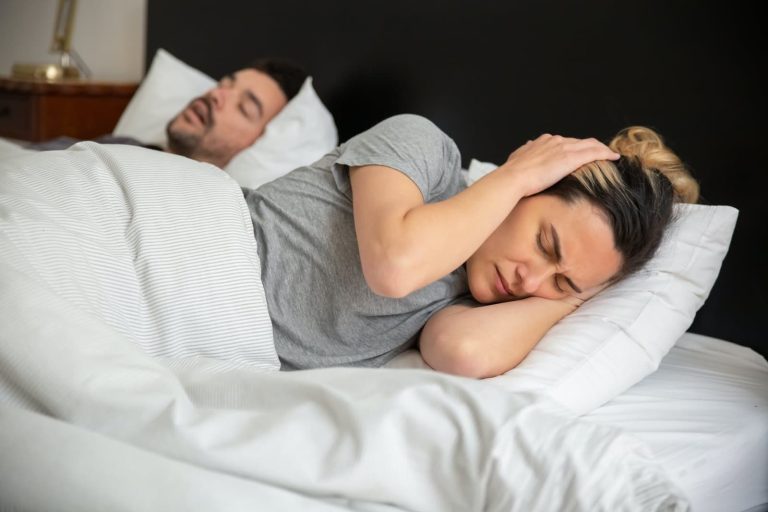The Effects of Sleep Apnea on the Body
Have you ever woken up in the middle of the night with a sudden jerk? Or like you’re gasping for air? How about in the morning, after a night’s sleep, you still feel irritated and with a headache?
You look it up on the internet, and it says that you could possibly have sleep apnea! What is it? How does it affect your body?
In this article, we’ll help you know if you do have sleep apnea. We’ll tell you what sleep apnea is, what the symptoms are, and what it does to your body.
Table of Contents
What is sleep apnea?
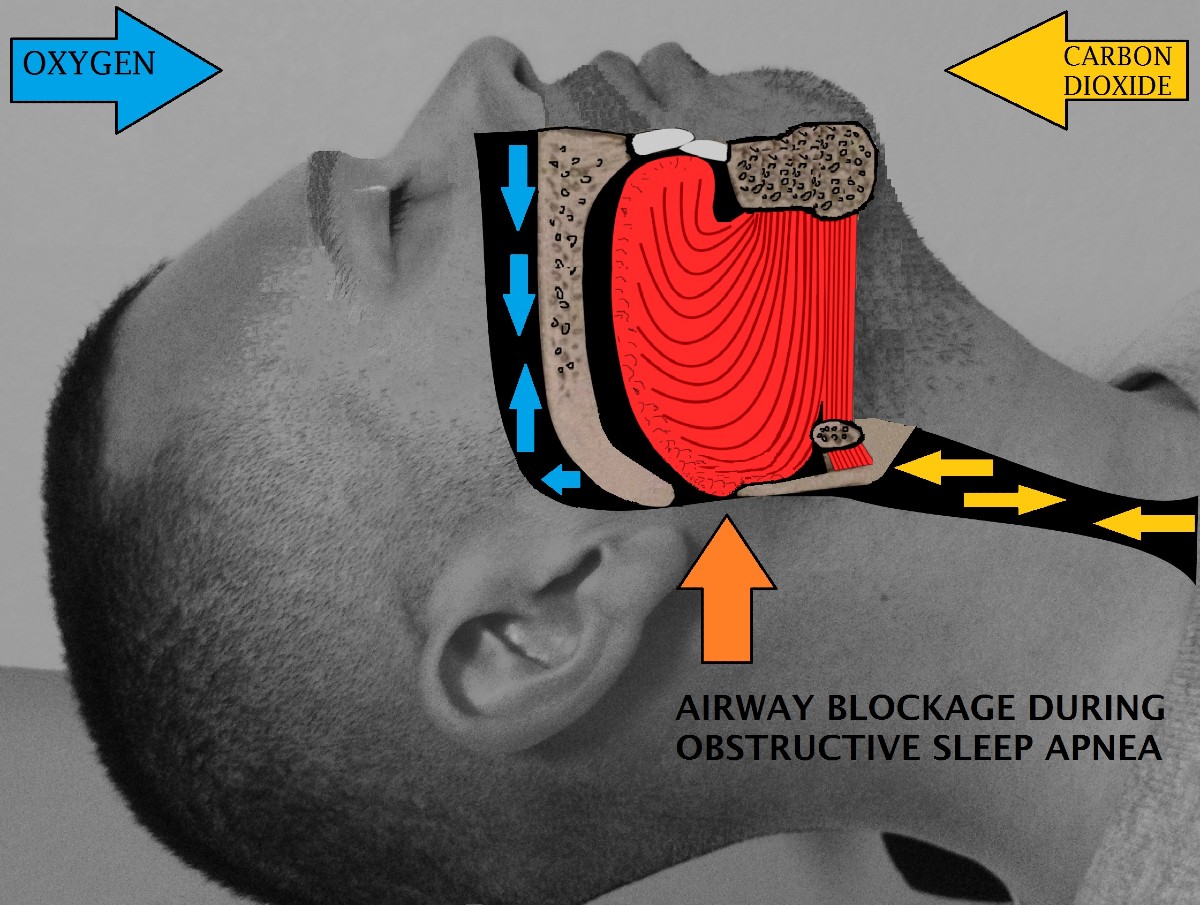
Sleep apnea is when you involuntarily stopped breathing for a few seconds while sleeping. It happens when your throat muscles relax and create a block in the airway. Sometimes its cause is a miscommunication link from your brain to the muscles.
The symptoms include but not limited to:
- Sleepiness during daytime
- Waking up in the middle of the night gasping or choking
- Snoring during sleep
- Headache in the morning
- Dry mouth and sore throat upon waking up
What are the effects of sleep apnea on the body?
When you have sleep apnea, you lose sleep. Thus, some of its effects are from your sleep loss, and those are:
1. Decreased Cognitive Skills
When you have sleep apnea, your ability to sustain attention, pattern recognition, and all other logical processes slow down. Meaning, you’re slower at working out problems.
Another crucial cognitive skill that you’d have trouble doing is memory. You’d be weak at attention, pattern formation, information, and all the other things that you use to remember things. Your brain slows down the smart train.
2. Circulatory System Issues
Sleep apnea is when you involuntarily put a pause in breathing for a few seconds, right? That means that there are a few seconds of your lungs not getting any oxygen.
So when your lungs are not getting oxygen, the heart starts to compensate. By compensating, we mean that your heartbeat will start to pick up. With the loss of the oxygen in that few seconds, they’ll try to deliver the oxygen that’s still in the lungs all around the body.
You’ll develop heart problems, as your heart will take the brunt of the work. This leads to high blood pressure, irregular heartbeats or rhythm, stroke, and even heart failure.
3. Weakened Immune System
Lack of sleep has long been linked with the lowering of the immune system. It shows that you would have a weakened immune system with sleep apnea that makes you lose sleep. You are weaker to fight off common colds or other viruses.
4. Metabolic Problems
The lack of oxygen affects the organs. It hinders or slows down all the jobs that they’re supposed to do. So you’re likely to have an increase in blood sugar level, that’s one. Another is having abnormal cholesterol levels. And even liver problems—the organ doing 500 tasks!
These are just some of what may develop from only frequent pauses of breathing while asleep. With the dip of oxygen levels, your body function follows. So it’s best to have yourself checked and get treated to be sure!
Different Sleep Apnea Treatment You Can Try
There are different methods of treatment: Self-help and medical intervention.
Self-Help Intervention
Self-help intervention means that its things that you can do to avoid having your airways blocked. These are some ways to help you prevent sleep apnea.
1. Sleep sideways.
When you sleep on your side, you are less likely to have the soft tissues and your tongue block your air passage.
2. Elevate your head.
There are now pillows designed especially for sleep apnea. They give the elevation and proper head support, preventing your airways from being blocked.
3. Decongest your nasal passages before sleeping.
Try clearing up your breathing using breathing strips, saline spray, neti pot, or a nasal dilator.
Medical Intervention
When your sleep apnea is severe, or you’ve tried doing the self-help, but sleep apnea still prevailed, you may need a doctor’s intervention.
1. Continuous Positive Airflow Pressure (CPAP)
CPAP is the most common medical treatment of sleep apnea. The CPAP device is connected to you through a mask and a tube. The mask is placed over your nose and mouth.
When the device is turned on, it provides a constant airflow— just the right amount of air pressure to keep your airways open.
2. Oral appliances
The alternative to CPAP is oral devices. It has been getting quite popular because of several advantages. Most of all, it’s less complicated and more convenient to use since you’re not hooked on a machine. Additionally, it’s silent and easy to carry.
The most common devices are a tongue guard and a mandibular advancement device (MAD). The tongue guard is like a popsicle splint, holding the tongue down to keep the airflow open. On the other hand, the mandibular advancement device is like a mouth guard, pushing the lower jaw to move forward.
Final thoughts
There’s no doubt that sleep apnea can have detrimental effects on your health. That’s why it’s a must that you carry out the necessary treatment to address this health problem right away.
